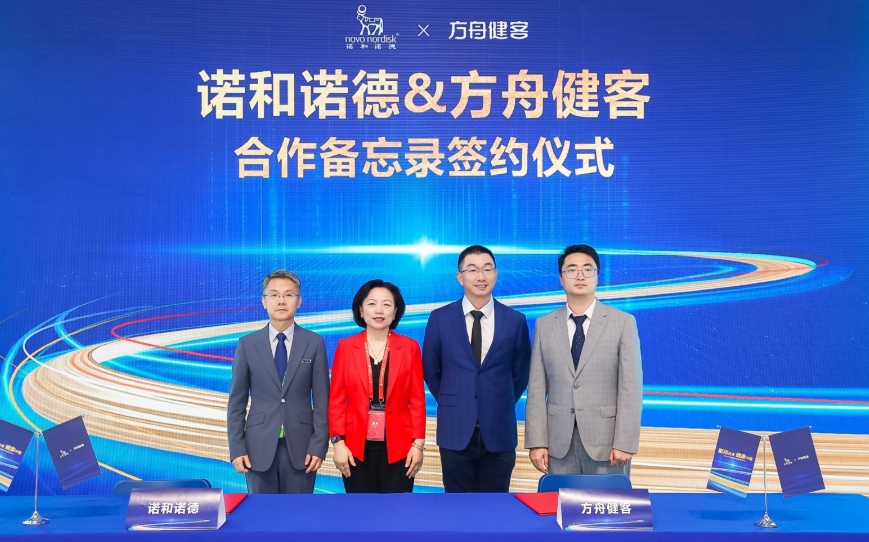
Asian countries are giving considerable importance to enhancing their healthcare delivery platforms through technology implementation
Information technology (IT) has emerged as a viable solution to cut down the cost of healthcare industry through solutions like cloud computing, mobile health services, real time monitoring, electronic health records and electronic medical records. The implemented projects at Asia and global level have demonstrated the quality, safety, and efficiency enhancement of healthcare delivery. The technology solutions allow healthcare providers to collect, store, retrieve, and transfer information in a faster and safer way and enables point-of-care delivery and remote patient monitoring at low costs and resources.
Global healthcare IT market is expected to grow from $99.6 billion in 2010 to $162.2 billion in 2015, at a CAGR of 10.2 percent from 2010 to 2015. Healthcare industry is witnessing a surge in the adoption of technology and cloud computing is expected to bring revolution in the healthcare IT market. With increasing implementation of IT in healthcare platforms, delivery models are gradually shifting from clinics to home care through preventive healthcare, remote patient monitoring and telemedicine.
MNCs take the lead
Asian countries are giving considerable importance to enhancing their healthcare delivery platforms through technology implementation and multinational companies like HP, Cisco, Intel and Dell are eyeing growing opportunities through their versatile solutions.
Tapping the opportunity, Dell Services launched a cloud-based solution to deliver clinical and financial systems for healthcare providers in India, targeted at midsized hospitals, large hospital chains and clinical networks. The solutions offered by the IT giant provide access to uniform workflows and customized reports across the ecosystem through a centralized approach.
The solution enables healthcare providers to adopt automated workflows and business processes using a single system that reduces administrative hassles and paper records. The IT enabled ecosystem also prevents manual errors and time delays and enhances the decision making process.
Commenting on the role of cloud in enabling better healthcare outcomes, Dr Ashwin Naik, Founder and CEO, Vaatsalya, India's hospital network focused on Tier II and Tier III towns said, "The healthcare industry in India is increasingly turning to IT adoption to improve patient outcomes. As hospitals and providers expand their operations with new referral centers, facilities, and acquisitions in new geographies, the need to access, integrate and connect these disparate systems is gaining importance. Cloud-based technology has the potential to addresses most of the IT-related issues, access to the right information at the right time and operational efficiency among others. More importantly it is affordable, scalable and flexible."
Options like Software-as-a-Service (SaaS) model by MNCs allow healthcare providers to quickly respond to increasing demands of infrastructure and storage, and train staff without huge capital investments.
Collaboration is another way through which global IT firms are integrating their service in healthcare domain. For instance, global telecom giant Vodafone partnered with AstraZeneca to use mobile health (mHealth) services to improve health outcomes for patients with cardiovascular conditions by creating a new mobile and internet-based service to support patients through their treatment process.
Through a partnership approach, Vodafone is building the technology, infrastructure and expertise for AstraZeneca to capture data from a variety of sources to improve overall engagement between patients and their health care professionals.
Through integration of mobile healthcare services in delivery systems, health care professionals would be able to give patients the option to use services as an integral part of the patient care process, empowering them to manage their conditions as part of their daily routine.
"There is a seismic shift happening in the global healthcare industry. The overarching trend is to integrate and move information to the right person or system at the right time - whether it's a provider's staff, external service provider, or the consumer (patient or prospect)," said Mr Sudhanshu Bhandari, senior analyst, Forrester Research.
Leveraging growing opportunities in the healthcare industry, Royal Philips, Philips' healthcare division, launched Healthcare Informatics Solutions and Services as a new business group within Philips' Healthcare sector. Healthcare Informatics Solutions and Services was created to partner with healthcare providers to improve access, lower cost and enhance quality from screening and diagnosis, to treatment and monitoring.
"Healthcare systems today are changing the way they operate, how decisions are made and how patients receive care," said Deborah DiSanzo, chief executive officer, Philips Healthcare. "This requires a significant overhaul of complex organizations, as well as the associated actionable data about each patient population they serve. As we continue to expand the tools, analytics, consulting and support, we are paving the way for providers to transition into more integrated, collaborative care."
Running in the race of maximizing opportunities in healthcare industry and to further build its portfolio in software, data and analytics, GE Healthcare is planning to acquire API Healthcare, a healthcare workforce management software and analytics solutions provider. The acquisition is planned to develop solutions to address management challenges of hospital operations costs, assets, patients and labour.
Earlier GE Healthcare had launched Centricity 360, a GE predictivity solution, that streamlines clinical collaborations among unaffiliated caregivers and patients to help reduce duplicate testing, avoid unnecessary patient transfers and lower diagnostic imaging distribution costs.
What Patients Need
According to a global customer survey report conducted by Cisco, there is a growing shift in consumer expectations on medical services. The survey also examined perceptions of consumers and health care decision makers on patient experience in health care. The report indicated that as information, technology, bandwidth, and the integration of the network become the center, both human and digital aspects are key parts to the overall patient experience.
A better ecosystem for healthcare delivery- An example
Wipro Technologies has launched Wipro AssureHealth platform in partnership with Microsoft targeted at healthcare providers to deliver innovative solutions for remote fetal monitoring and cardiac care to ensure high quality treatment at reduced costs. The Wipro AssureHealth platform leverages Microsoft's Cloud, Mobility and Analytics offerings to allow care providers to monitor patients regularly and precisely. This is done through hosted services and mobile apps that integrate medical devices, IT Infrastructure and 24/7 customer support, to deliver highly scalable solutions. The fetal monitoring service delivers accurate recordings of maternal, fetal heart rate and uterine activity from the expectant mother to the physician over his or her mobile device thereby enhancing the doctors' ability to provide enhanced care to patients. The fetal monitor is a small wearable wireless device that provides beltless monitoring of the mother and the baby in the womb. It accurately records maternal and fetal heart rate, and uterine activity, thereby providing information on fetal and maternal well-being. The device is suited for both antenatal care, and during active labour and delivery.
The cardiac solution is based on Wipro's Assurehealth software platform and delivers continuous wearable, ambulatory, non-obtrusive ECG data. It is designed to assist cardiologists to monitor and manage patients with angina, myocardial infarction, and post cardiac procedures like stent, pacemaker and bypass as well as cardiac failures from anywhere, through their smart phone or tablets. This avoids frequent visits to the OPD for follow up, the needless waiting time and anxiety for patients.




